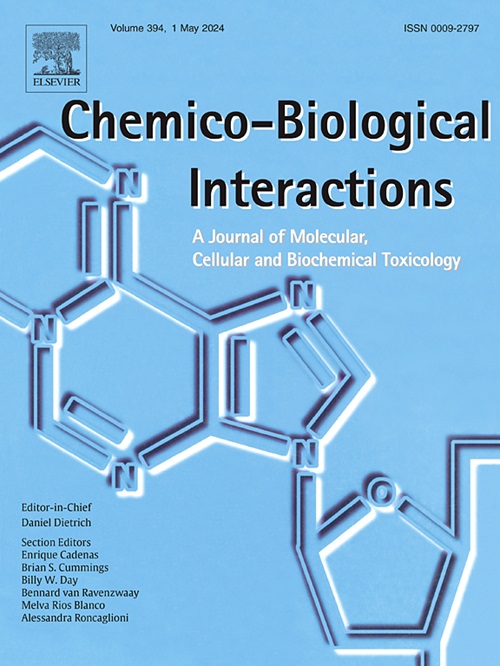巴黎皂苷VII通过AKT1和STAT3信号通路抑制PD-L1介导的免疫逃避。
IF 4.7
2区 医学
Q1 BIOCHEMISTRY & MOLECULAR BIOLOGY
引用次数: 0
摘要
胶质母细胞瘤(GBM)是一种高度侵袭性和致死性的脑癌。巴黎皂苷VII (psvii)因其潜在的抗肿瘤特性而备受关注,但其对GBM的抗肿瘤作用及其机制尚不清楚。本研究表明,PS VII可抑制GBM细胞的增殖和迁移率。PS VII诱导细胞周期阻滞在G2/M期,这与CDK1、Cyclin D1和CDK2的表达显著降低有关。此外,PS VII通过上调Bax的表达,下调Bcl-2的表达,导致Caspase-3和PARP的激活,以剂量依赖性的方式触发细胞凋亡。进一步研究发现,PS VII可有效抑制PD-L1的表达,而PD-L1是肿瘤发生的关键因子。此外,PS VII通过调节AKT1和STAT3信号通路的活性来降低PD-L1的表达。在肿瘤/T细胞共培养系统中,PS VII通过抑制PD-L1的表达恢复T细胞的活化。值得注意的是,PS VII通过降低PD-L1抑制GBM细胞的增殖和迁移。体内研究表明,PS VII可减小肿瘤体积和大小,且浓度越高,治疗效果越好。这些结果揭示了PS VII对GBM的先前未被认识到的抗肿瘤作用,提示其作为GBM治疗药物的潜力。本文章由计算机程序翻译,如有差异,请以英文原文为准。
Paris saponin VII restrains PD-L1 mediated immune evasion through the AKT1 and STAT3 signaling pathways
Glioblastoma (GBM) represents a highly aggressive and fatal type of brain cancer. Paris saponin VII (PS VII) is noteworthy for its potential anti-tumor properties, yet the anti-tumor effect and underlying mechanism of PS VII on GBM remain unclear. This study demonstrated that PS VII inhibited the proliferation and migration rates of GBM cells. PS VII induced cell cycle arrest at the G2/M phase, which was linked to significant reductions in the expression of CDK1, Cyclin D1 and CDK2. Furthermore, PS VII triggered cells apoptosis in a dose-dependent manner by up-regulating the expression of Bax while down-regulating that of Bcl-2, leading to the activation of Caspase-3 and PARP. Further investigation revealed that PS VII effectively suppressed the expression of PD-L1, a key factor in the development of tumors. Additionally, PS VII decreased PD-L1 expression by modulating the activities of AKT1 and STAT3 signaling pathways. In tumor/T cells co-culture system, PS VII restored the activation of T cells by inhibiting PD-L1 expression. Notably, PS VII inhibited GBM cells proliferation, migration by reducing PD-L1. In vivo study showed that PS VII reduced the volume and size of tumors, and achieved better therapeutic effects at higher concentrations. These results revealed PS VII's previously unrecognized anti-tumor effects on GBM, suggesting its potential as a therapeutic drug for GBM treatment.
求助全文
通过发布文献求助,成功后即可免费获取论文全文。
去求助
来源期刊
CiteScore
7.70
自引率
3.90%
发文量
410
审稿时长
36 days
期刊介绍:
Chemico-Biological Interactions publishes research reports and review articles that examine the molecular, cellular, and/or biochemical basis of toxicologically relevant outcomes. Special emphasis is placed on toxicological mechanisms associated with interactions between chemicals and biological systems. Outcomes may include all traditional endpoints caused by synthetic or naturally occurring chemicals, both in vivo and in vitro. Endpoints of interest include, but are not limited to carcinogenesis, mutagenesis, respiratory toxicology, neurotoxicology, reproductive and developmental toxicology, and immunotoxicology.

 求助内容:
求助内容: 应助结果提醒方式:
应助结果提醒方式:


